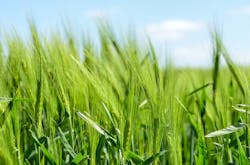New rules could stimulate water reuse across Europe
BRUSSELS, Belgium - The European Commission (EC) is proposing new rules to stimulate and facilitate water reuse in the EU for agricultural irrigation.
The new rules are designed to help farmers make the best use of non-potable wastewater, alleviating water scarcity whilst protecting the environment and consumers.
As part of the development, minimum requirements would be set for the reuse of treated wastewater from urban wastewater treatment plants, covering microbiological elements (for example, levels of E. coli bacteria) and monitoring requirements for routine and validation monitoring.
The commission said that “water reuse in the EU today is far below its potential despite the fact that the environmental impact and the energy required to extract and transport freshwater is much higher”.
The proposal is part of the Commission's 2018 Work Programme, following up on the Circular Economy Action Plan, and completes the existing EU legal framework on water and foodstuffs.
Commissioner Vella, responsible for the Environment, Maritime Affairs and Fisheries, said: "This proposal will create only winners – our farmers will have access to a sustainable supply for irrigation water, our consumers will know the products they eat are safe, and our businesses will see new opportunities. The biggest winner of them all will be our environment as the proposal contributes to better management of our most precious resource – water."
Oliver Loebel, secretary general of EurEau, commented: “The new regulation will, for the first time, set European standards for using water for irrigation. By reusing water, we will reduce the pressure on water resources and ensure the safe irrigation of crops. To make this possible, the proposal must guarantee the safety of the water used for irrigation while ensuring that treating water remains economically viable.”
###
Read more
